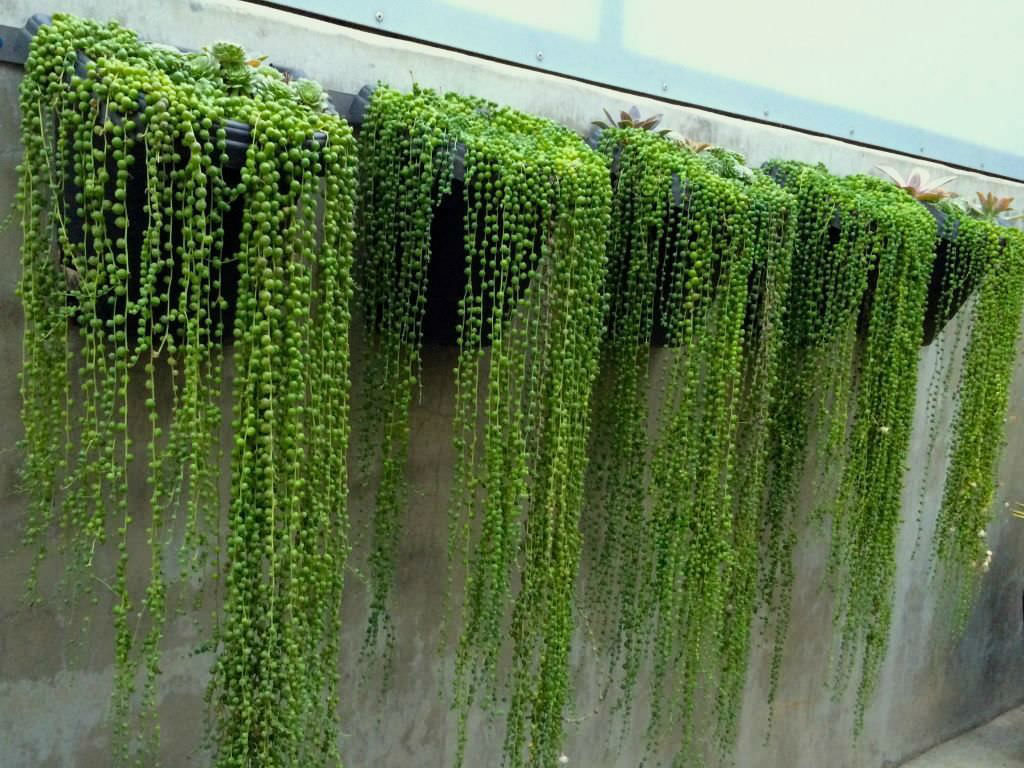
How to Grow and Care for a String of Pearls World of Succulents
The string of pearls plant ( Senecio rowleyanus ), also known as string of beads or necklace plant, is one of the most striking succulents out there. This drought-tolerant plant gets its name from the appearance of its leaves, which look like pearl-sized peas strung along thin, delicate stems.
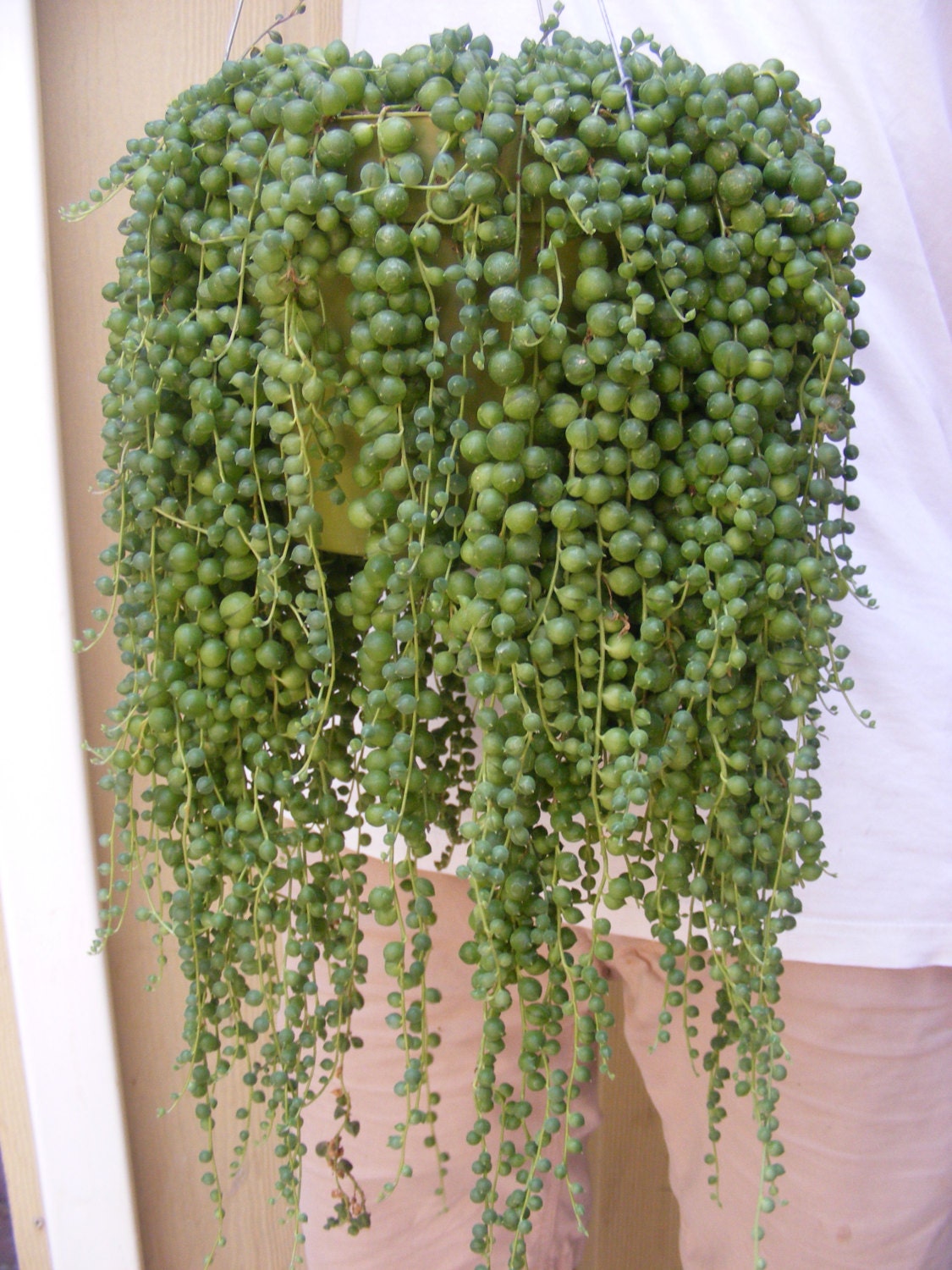
String of Pearls Senecio rowleyanus Succulent 5 cuttings
Take a 5-inch cutting along the string with a pair of fine-tipped scissors. Remove half of the pearls and place the string end in a glass of water to root. If you don't want to use water, plant the empty string directly into a cactus or succulent soil mix. "You can even lay it on top of the soil without removing any of the pearls," he says.
/kararileystringofpearls-15H-eab706c755e94831a7ecc4e92bd51a11.jpg)
How to Grow and Care for String of Pearls Plant
String of pearls ( Senecio rowleyanus, sometimes sold as Curio rowleyanus) is a sought-after hanging succulent house plant. Its trailing stems have pea-like leaves that look like beads - hence its common name. In spring, the plant may produce small white, cinnamon-scented flowers.
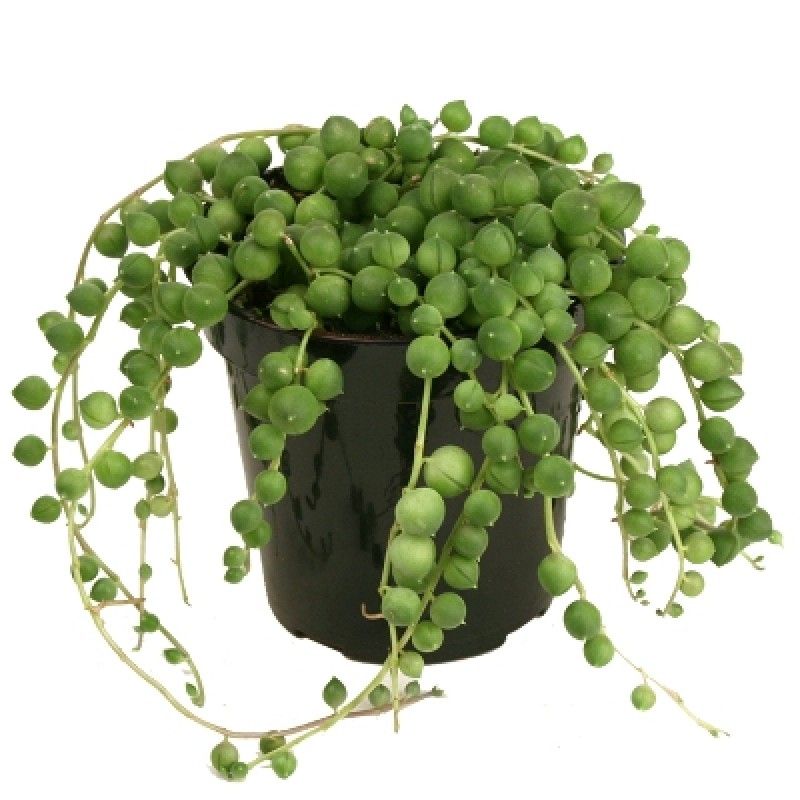
String of Pearls plant Care & Guide Bloggerstalent
String of pearls (Curio rowleyanus), sometimes called string of beads, is a beautiful trailing succulent plant that has a very unique growth habits. It's a shallow rooted plant native to Africa that produces long stems with fleshy, pea-shaped round leaves.

How to Propagate String of Pearls From Cuttings (Senecio Rowleyanus)
Did you know that the String of pearls is popular among gardeners because of its gorgeous, pearl-like leaves that hang like a curtain of beads? Other growers consider this outdoor plant low-maintenance since it doesn't require much watering, and thrives with neglect in some countries with less monsoon season or dry climates.

String of Pearls I Senecio rowleyanus Plant Delivery UK Bloombox Club
A Complete Guide to String of Pearls: Care, Propagation & Repotting Download Article How often should you water your string of pearls? Co-authored by Janice Tieperman Last Updated: May 18, 2023 Fact Checked General Care | Propagating | Repotting | Tips | Warnings | Things You'll Need
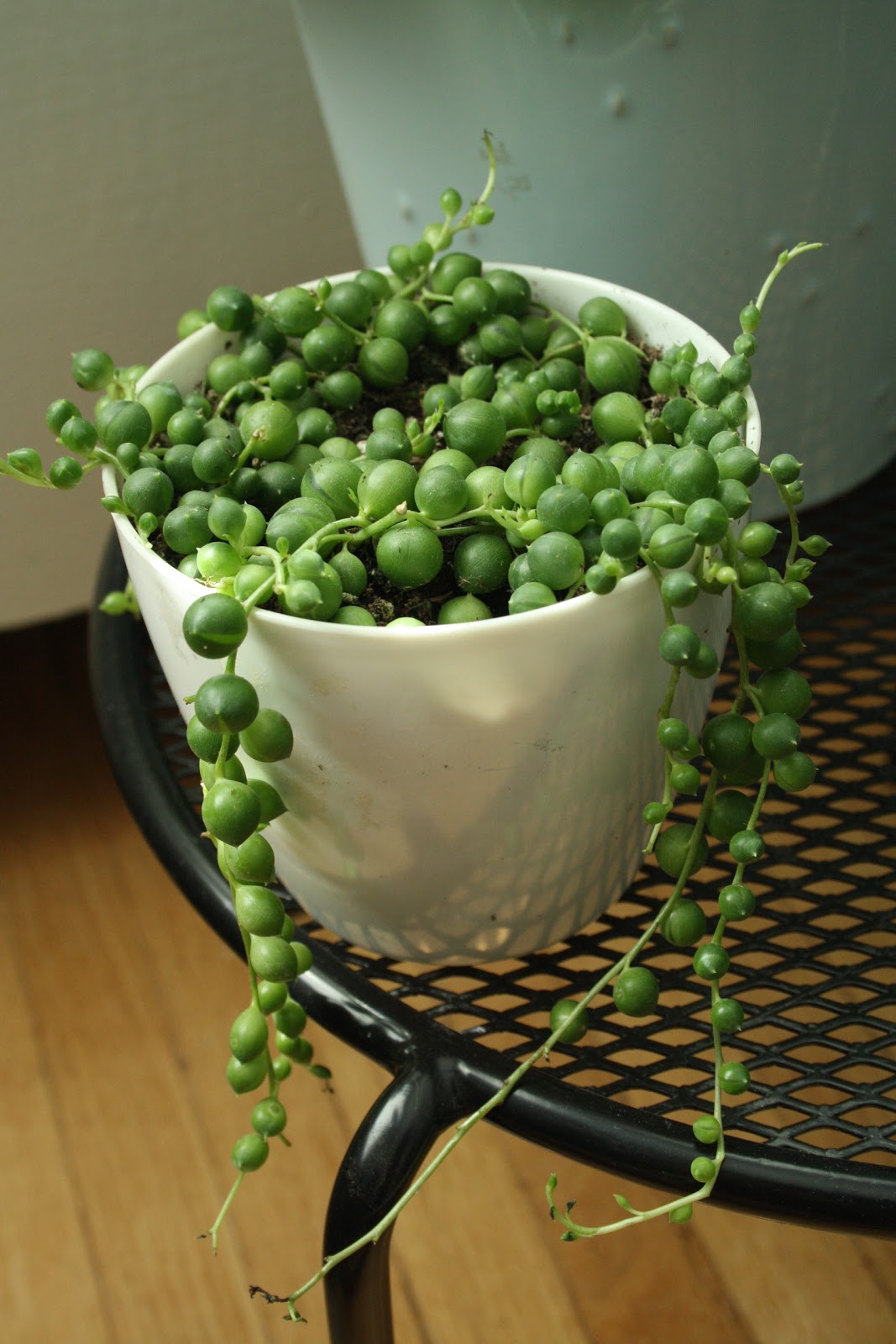
Captive Creativity String of Pearls (Senecio rowleyanus) Plant Care
Pearl string plant can't survive frost or freezing temperatures. As true desert plants, they like to be warm (70-80° F). Be cautious of cold indoor drafts that could damage the stems. During the winter, when string of pearls goes dormant, your indoor temperatures can drop down as low as 50° if necessary. If your home stays around 68° all.

String of Pearls, Live Plant 4 in. Pot Alsip Home & Nursery
Step 1: Choose a Healthy Stem. When propagating String of Pearls, it is essential to choose a healthy stem. Look for a stem that is at least two inches long and has several leaves. The stem should be firm and not mushy or discolored. Using a clean and sharp pair of scissors, cut the stem from the parent plant.

Variegated String of Pearls Senecio rollqwleyanus Succulents Depot
Learn how to grow string of pearls plants, unique vining succulents with tiny pea-shaped leaves, in pots or hanging baskets. Find out how to prune, propagate, pot, and overwinter this plant, as well as its common problems and benefits.

String of Pearls Ultimate Care Guide (and how not to kill them) lovethatleaf
What soil's best for String of Pearls? Let's start at the bottom. Soil is super important for these vining peas. Okay, they aren't peas, they're succulents. But a happy String of Pearls should be plump and almost completely round, like a pea.
:max_bytes(150000):strip_icc()/kararileystringofpearls-11-e358f583cc6b44c887609dc7b3cd1aec.jpg)
How to Grow and Care for String of Pearls Plant
Learn how to grow, water, fertilize, and propagate String of Pearls, a cascading succulent that thrives in a warm and dry environment. Find out the toxicity, toxicity, and toxicity of this plant, as well as the best indoor and outdoor conditions for it.
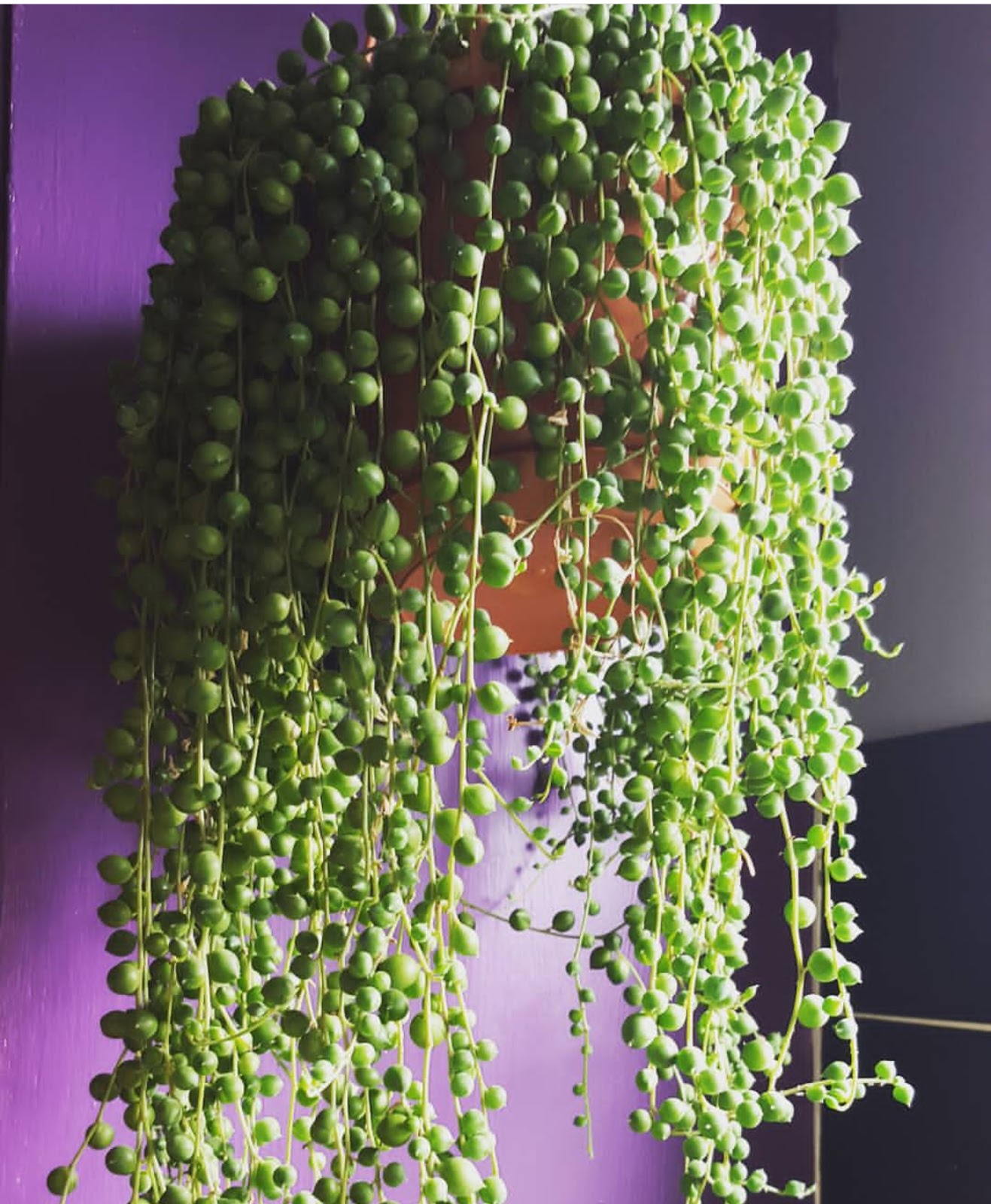
String of pearls care and propagation
Above: Delicate string of pearls plants start small, but tendrils can grow up to two or three feet long. Photograph via Etsy.. Also known as "string of beads" or "rosary," this succulent is a perennial vine of the Asteraceae family and is native to southwest Africa. Like most succulents, it requires very little hands-on care.
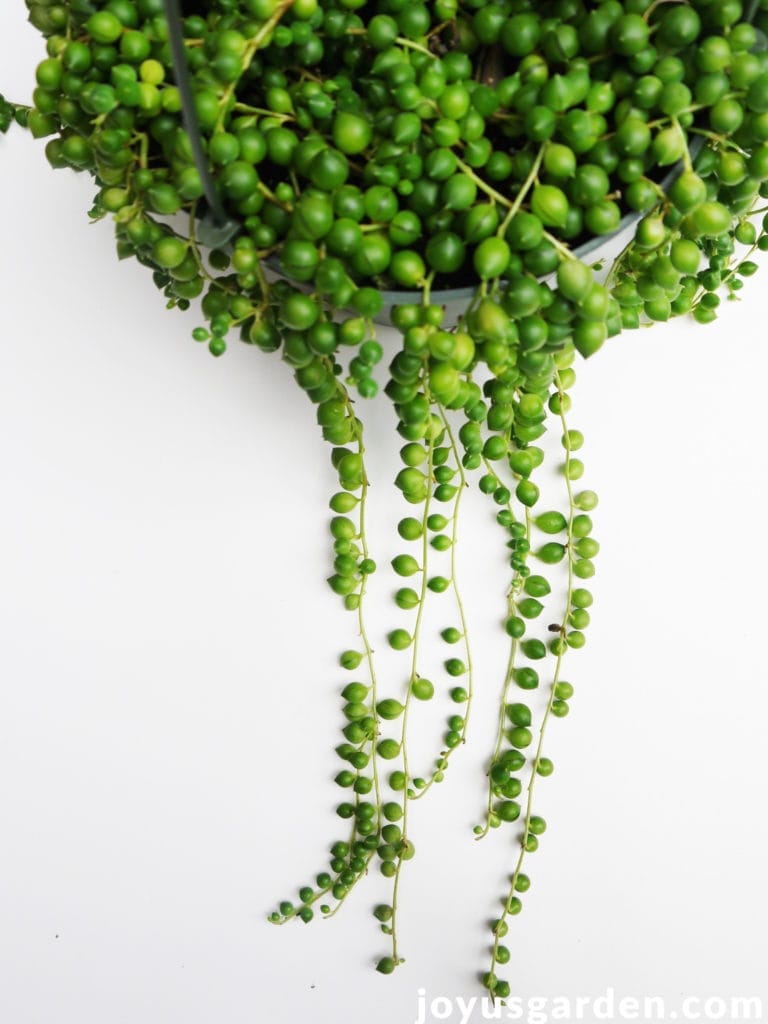
String Of Pearls Plant 10 Reasons Why Yours Isn't Growing Indoors
String of Pearls is a true desert plant and likes warm and dry climate, just like in its homeland South Africa. The temperature at which to grow a String of pearls should be above 50° F, ideally, between 70-80°F. Don't expose them to frost or freezing temperatures.
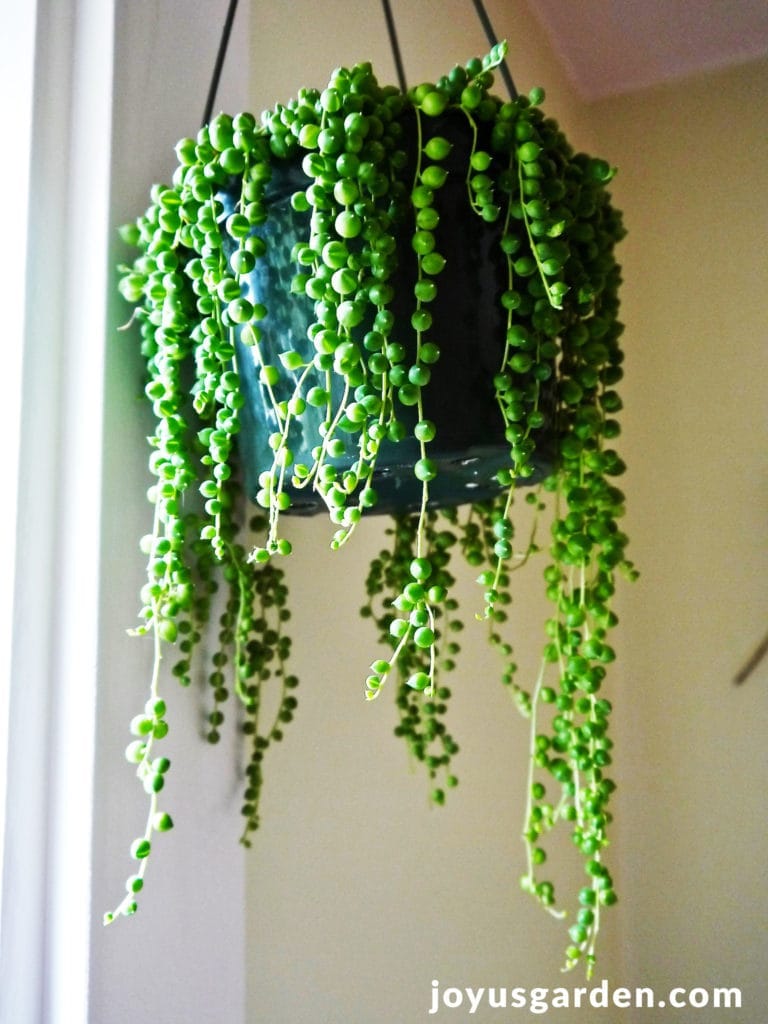
10 Reasons Why Your String Of Pearls Isn't Growing Indoors
The string of pearls plant grows well in bright light, including sunlight. You should provide this string of beads houseplant with average indoor temperatures around 72 degrees F. (22 C.) throughout its active growth. During its dormancy, however, you'll need to provide cooler conditions, generally somewhere between 50 to 55 degrees F. (10-13 C.).
String of pearls...finally having some success after killing my share of these guys. I used to
When you water your String of Pearls, give them a good soak every week or two. To check, stick your finger or a wooden skewer into the soil to ensure that the first couple of inches are starting to dry out. Water thoroughly and ensure that the pot drains completely. If the tray beneath the plant has sitting water, pour it out or dry it with a.
:max_bytes(150000):strip_icc()/kararileystringofpearls-8-02a216f00a3945b4af36746867343027.jpg)
How to Grow and Care for String of Pearls Plant
String of pearls blooms in summer, producing ½ inch compound, daisy-like flowers of white discoid flowers with long red stamens and bright yellow anthers on 1½ inch long peduncles. The small flowers are not showy but are fragrant; it is said to have a sweet and spicy, cinnamon-like scent.